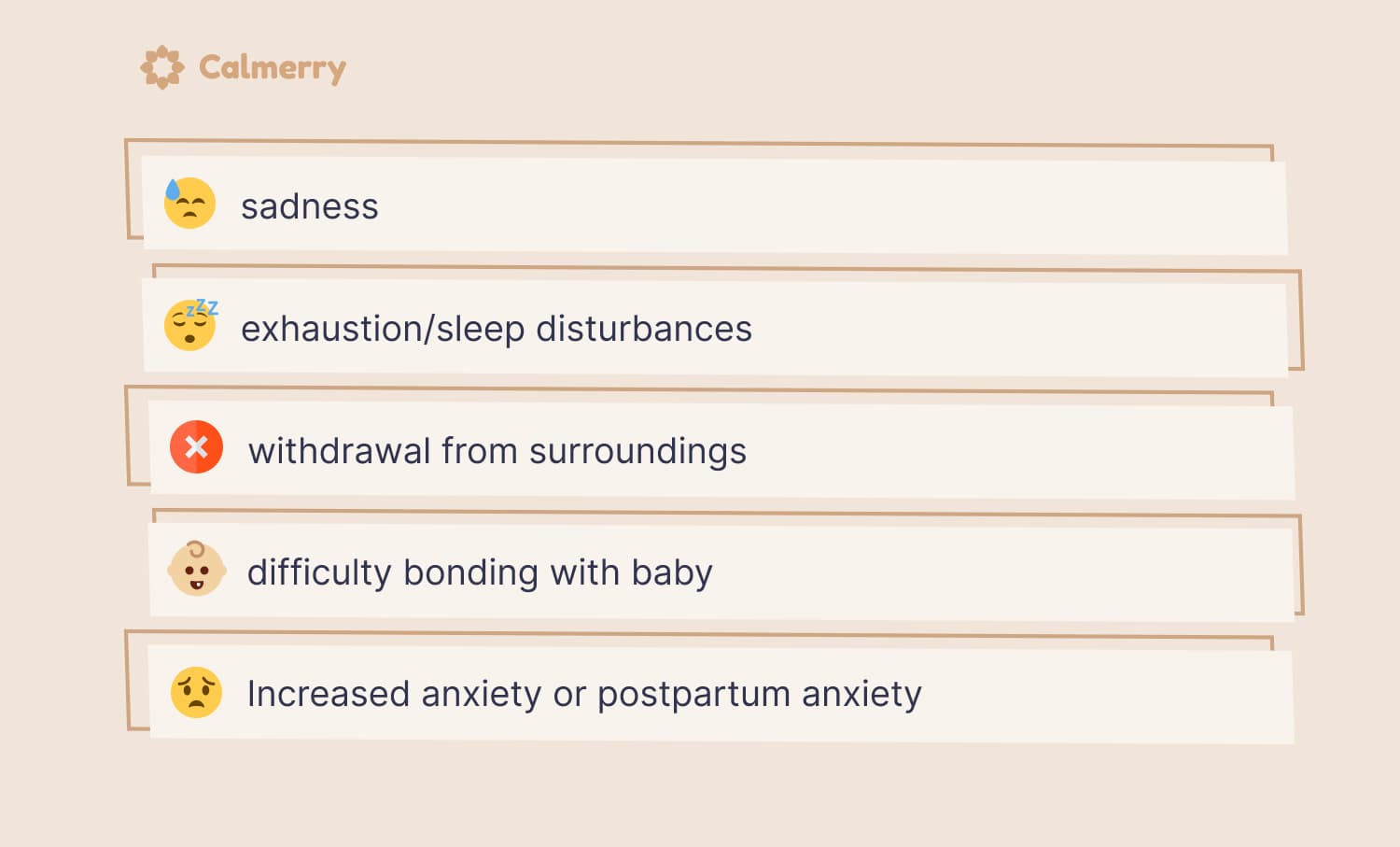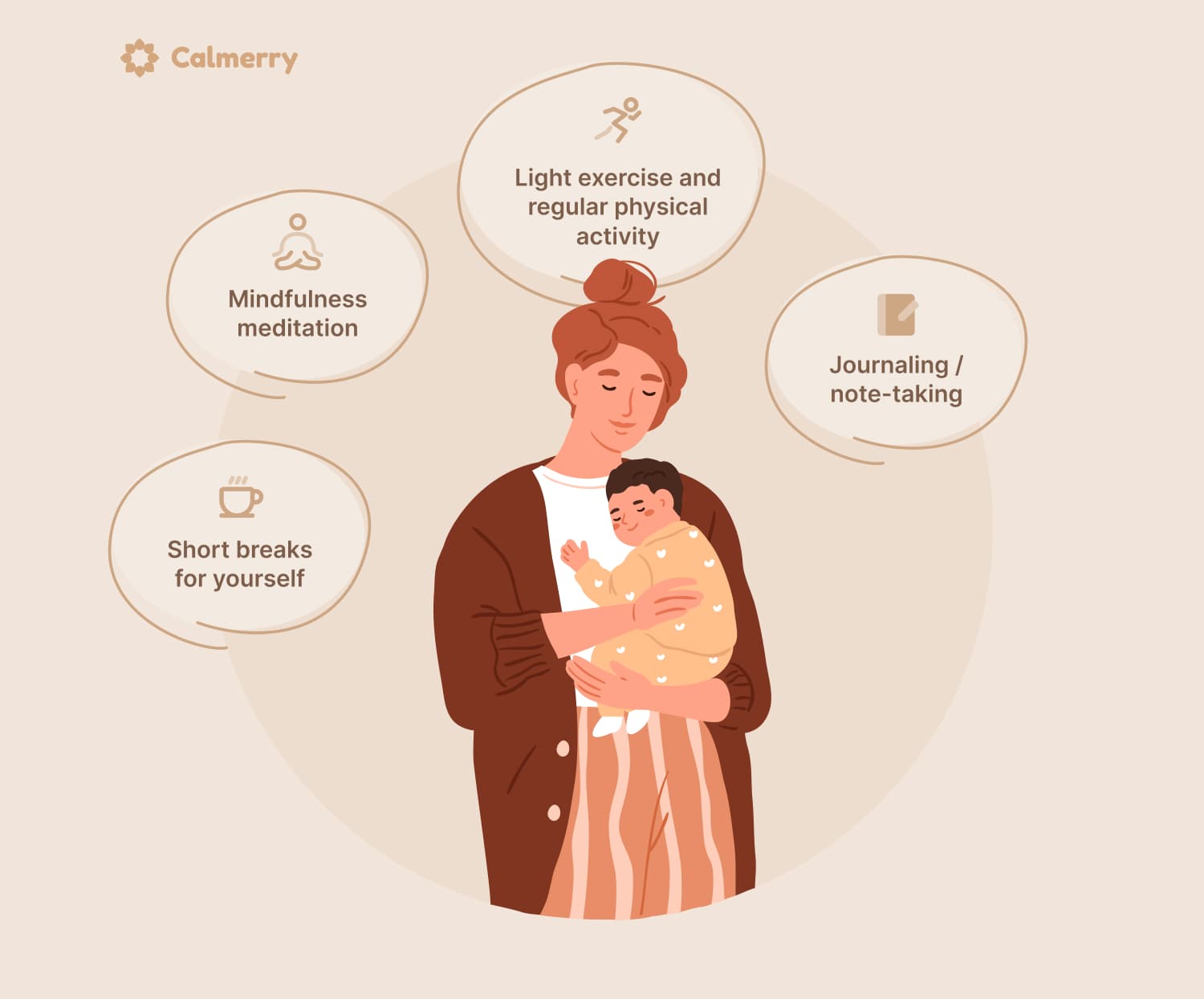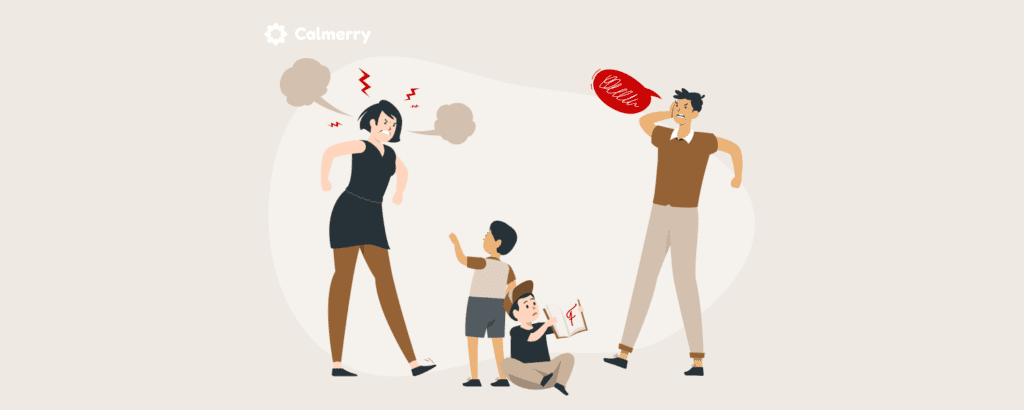Managing Postpartum Depression and Motherhood Stress

In this article
Motherhood is often described as beautiful, but every mom knows it also comes with intense stress. From sleepless nights to endless responsibilities, a mom can quickly find herself battling maternal stress, postpartum anxiety, and the invisible weight of daily tasks. Understanding where this mom’s stress comes from, how it affects mental health, and what strategies, including self-care, can help is essential for a balanced life.
This guide explores the roots of stress in motherhood, the signs of postpartum depression, and practical ways to cope, build resilience, and protect maternal mental health. Fortunately, maternal mental health counseling provides accessible support for mothers who may struggle to attend traditional therapy appointments due to childcare demands.
Platforms like Calmerry offer flexible mental health services specifically designed to help mothers navigate postpartum challenges and maternal stress.
What causes stress in motherhood and why do moms feel overwhelmed?
The causes of stress in motherhood are multi-layered. Many moms describe carrying an invisible load: constant decision-making, managing household responsibilities, and keeping track of every item on the family to-do list. When combined with sleepless nights and childcare, this weight can leave you feeling overwhelmed and even exhausted.
External pressures, from social expectations to financial concerns, add another layer of strain. Moms often struggle with feelings of inadequacy, believing they must be perfect in both parenting and career. These stressors, when left unchecked, can lead to chronic stress and an imbalance between mental and physical health.
How does maternal stress impact mental health and parenting?
High levels of maternal stress don’t just affect moms, as they shape the entire family environment. When a mother is under constant pressure, the body releases excess stress hormone (cortisol) [1] Chronic stress puts your health at risk. (n.d.). Mayo Clinic. https://www.mayoclinic.org/healthy-lifestyle/stress-management/in-depth/stress/art-20046037 . Over time, this impacts mental health, increases the risk of depression, and reduces patience in parenting moments.
Moms under constant stress may find it harder to engage emotionally, leading to feelings of inadequacy, stress, and burnout. Children can sense this tension, and the parent-child bond may weaken when a mom’s emotional well-being is stretched thin.
What are the signs of postpartum depression?
While many moms experience short-term “baby blues,” postpartum depression is deeper and more persistent. Signs include:
- Persistent sadness or hopelessness.
- Withdrawal from parenting activities and loved ones.
- Severe exhaustion and disrupted bedtime patterns.
- Difficulty bonding with the baby.
- Heightened worry or postpartum anxiety.
Recognizing these signs is critical for protecting maternal mental health and ensuring early support. Unlike typical stress, postpartum depression [2] Postpartum depression. (n.d.). ACOG. https://www.acog.org/womens-health/faqs/postpartum-depression does not fade without treatment and may worsen if ignored.

How can stressed moms build resilience in daily routines?
One effective approach is creating daily routines that support both structure and flexibility. A consistent bedtime routine not only improves quality sleep but also allows the body to recover from stress and anxiety.
Small habits matter:
- Prioritizing regular physical activity.
- Simplifying a busy mom’s schedule.
- Using mindfulness practices for managing stress.
Over time, these habits strengthen the ability to recover quickly from setbacks, protecting both maternal mental health and overall stability.
Why self-care for moms is essential to reduce stress
Many moms put themselves last, but self-care for moms is not optional, as it’s the foundation for a balanced life. Without it, stress and burnout accumulate, leaving mothers feeling overwhelmed and exhausted.
True self-care goes beyond spa days. It includes basic needs like quality sleep, healthy meals, and mental rest. Investing in these areas helps reduce both physical exhaustion and emotional overload. When moms thrive, the whole family benefits.
What self-care activities actually help reduce maternal stress?
Not all self-care activities are equally effective. The best ones target both body and mind:
- Mindfulness meditation for calming the nervous system.
- Light exercise and regular physical activity for energy.
- Journaling or reflection to process stressors.
- Short breaks from parenting to recharge.
These activities directly help reduce the effects of maternal stress and support lasting balance. Choosing what feels realistic increases consistency and impact.

How can moms make time for self-care amid parenting pressure?
Finding ways to make time for self-care can feel impossible under parenting pressure. Many moms juggle work, family, and an endless list of obligations. Yet carving out even 15 minutes daily is crucial.
Practical tips include:
- Setting a firm bedtime for children.
- Sharing childcare responsibilities with a partner.
- Scheduling self-care activities into the calendar like any other appointment.
By reframing self-care as non-negotiable, mothers create space to recharge and prevent burnout.
How do boundaries help manage stress and prevent burnout?
Healthy setting boundaries allows moms to protect their time and energy. Saying “no” to extra commitments or limiting external pressures is not selfish, as it’s essential for avoiding stress and burnout.
Boundaries also reduce feelings of inadequacy by setting realistic expectations. Whether at work or in family life, boundaries create a more sustainable rhythm and support a balanced life.
How can mindfulness and stress management techniques support moms?
Mindfulness and intentional stress management strategies give moms practical tools for coping with pressure. Techniques like deep breathing, body scans, or mindful walks calm the mind and body, lowering stress hormone levels.
For many, mindfulness provides a reset button, improving focus and patience during parenting challenges. These techniques not only enhance coping but also strengthen emotional well-being over time.
When should a mom seek professional help for maternal mental health?
Sometimes stress becomes too heavy to handle alone. A mom should consider seeking professional help if she notices signs of postpartum depression, persistent postpartum anxiety, or ongoing exhaustion despite lifestyle changes.
Working with a licensed therapist can provide targeted strategies for managing stress, addressing deeper issues, and restoring maternal mental health.
For the stressed-out mom
Every mom experiences stress, but when it becomes constant, it affects both her and her family. By recognizing the signs of postpartum depression, setting boundaries, prioritizing self-care, and seeking support when needed, moms can build resilience and protect their mental and physical health.
A stressed mother deserves compassion, not judgment. With the right tools and resources, it’s possible to help you manage stress, reduce the impact of the invisible load, and thrive in both motherhood and life.
Chronic stress puts your health at risk. (n.d.). Mayo Clinic. https://www.mayoclinic.org/healthy-lifestyle/stress-management/in-depth/stress/art-20046037
Postpartum depression. (n.d.). ACOG. https://www.acog.org/womens-health/faqs/postpartum-depression
online therapy
live video session



